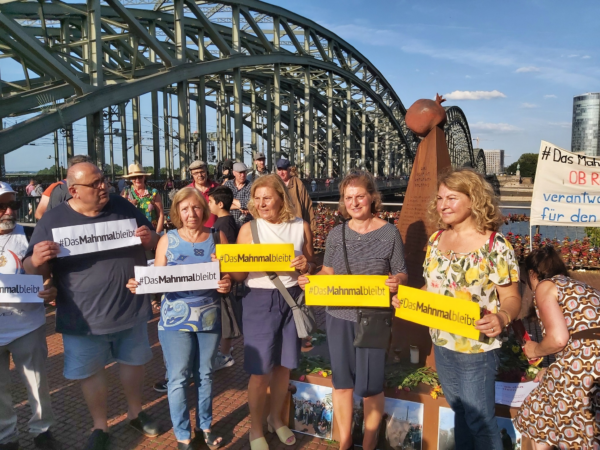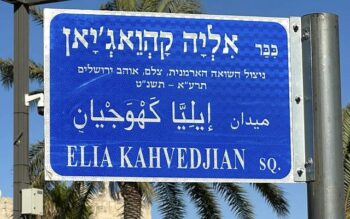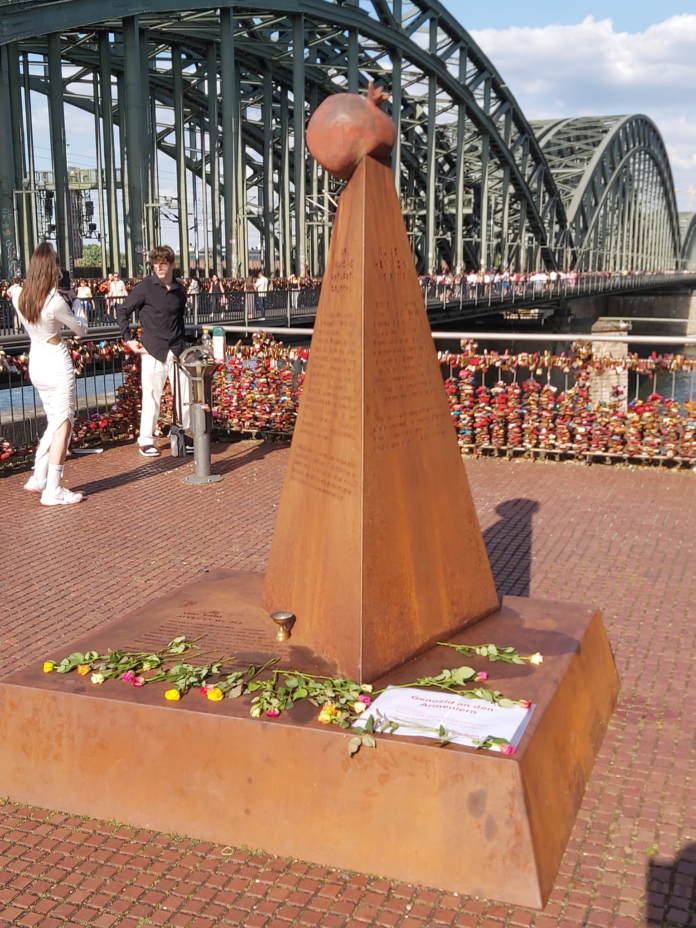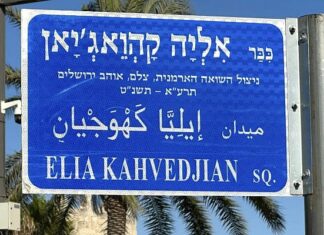COLOGNE — Since 2018, the city of Cologne in the Ruhr region of Germany has been the site of a tug-of-war between the Armenian community, consisting of about 6,000 people, and a vast coalition of about 50 Turkish associations.
The bone of contention is a 1.5-meter-high stele, a monument to the memory of the victims of the Armenian Genocide. The monument, which bears the words, “This pain affects us all,” has been repeatedly erected, and, by order of the city authorities, repeatedly removed. In April of this year, with a special, temporary permit, it was on display for the annual commemorations of the genocide, and afterwards the inner-city district representation passed a resolution calling for it to remain in a prominent location, to be decided later. The city council was to make final plans; but, instead, the conflict escalated. The city administration issued an ultimatum: either the promoters would remove it by July 10, or the city would take it down by force. The obvious question was: had the city authorities been swayed by Turkish lobby groups?
On the website of the coalition of Turkish-German organizations, the charge was that behind the monument was a “group inside Cologne’s Armenian community” that was animated by anti-Turkish sentiments; the “pseudo-genocide monument” aimed at sowing “hatred between the social groups” through commemoration of the “so-called Armenian genocide,” according to one press account. Nothing could be farther from the truth, as promoters of the initiative have stressed. Tessa Hofmann, chairwoman of the human rights group Against Genocide, for International Understanding (AGA), wrote on July 9 in an appeal to the Cologne city authorities, a forced removal of the monument would send “the completely wrong signal, from the political, historical, and memory cultural standpoint, because it would encourage nationalist and anti-Armenian motivated hatred, and discourage the ethnic Turkish initiators of this initiative.” In this context she named the late “Cologne author and human rights activist, Dogan Akhanlı” who had raised funds for the monument. His example, she wrote, bears “remarkable testimony to civil society cooperation among people of different backgrounds, but with shared ethical convictions.”

On July 10 a lively demonstration against the threatened removal took place, organized by “Remember Genocide,” and other civil society groups, under the motto “The Monument Stays!” Local and national press organs, including the national television news, carried objective coverage of the event. For the moment, the monument remains. The city authorities have evidently opted for a temporary truce; following the summer break, all sides are to “come together” to deliberate. “Remember Genocide” representative Illias Uyar, a longstanding friend and lawyer for Akhanlı, was skeptical. The opposition, which he characterized as made up of “revisionists, nationalists, and denialists,” is unlikely to compromise. To secure a place for the monument and protect the culture of memory, the mobilization will have to continue and expand, not only in Germany, but also internationally.








